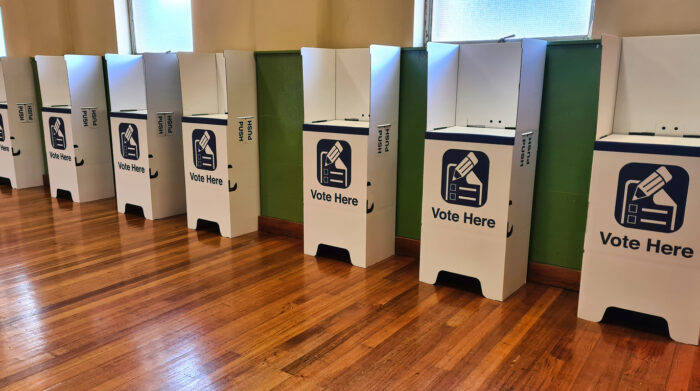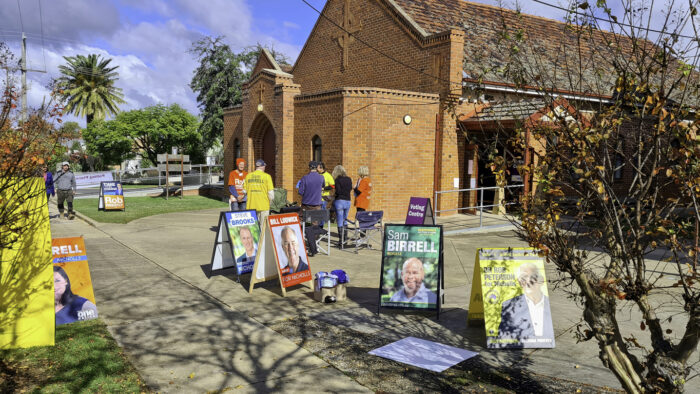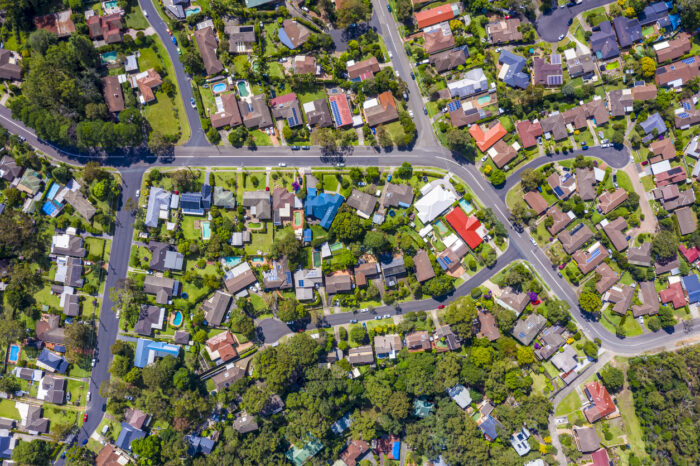Insights
Do federal elections really impact the property market?
Published
02 April, 2025

Well, we’re about to gear up for another federal election. With the two-horse race in full swing, the question often arises: what will the federal election mean for the property market?
Speculation runs wild, with buyers, sellers and investors trying to predict how policies, leadership changes and economic shifts will influence house prices and investment trends. Or… do they? Do real estate experts give considerable thought to the impact of elections on our real estate market?
Let’s find out by looking back into history and uncovering the potential domino effects of elections and Australia’s property market.
The impact of Australian federal elections on real estate

In a nutshell, elections can cause short-term volatility. Market activity might slow in the months leading up to an election as buyers and sellers wait to see the outcome and give themselves a little extra surety about the future ahead. But once the dust settles, confidence typically returns, and any downturn in activity tends to correct itself quickly.
During the 2019 federal election, there was widespread concern over Labor’s brave proposal to remove negative gearing for existing properties. Investors hesitated. And why wouldn’t they? After decades of enjoying the huge tax benefits of negative gearing, the thought of massively enlarged tax obligations created a temporary lull in the market.
But when the Coalition government was re-elected—with no changes to negative gearing policies—the market rebounded almost immediately.
Similarly, in the lead-up to the 2022 federal election, the talk was all about housing affordability, interest rate hikes and potential changes to first-home buyer schemes. This created uncertainty yet again. But once the election was over, the market responded more to external economic factors—like the Reserve Bank of Australia’s (RBA) continued interest rate hikes—rather than any direct impact from the election outcome itself.
Comparing Australia to the US

The US presidency can create broader, more lasting ripple effects to the economy. The States have the sheer size and influence of their economy to thank for this, along with the country’s deep ties to global financial markets.
When Donald Trump won the 2016 US election, his aggressive tax cuts and deregulation policies led to a boom in the American stock market. This boosted investor confidence globally—including in Australia—where stock market gains can often tie in with property value appreciation.
There’s also the character of many of the US’s leaders.
We don’t have quite the leadership figures of a, say, Donald Trump, who are willing to make immediate and largescale changes to the taxation and regulatory systems—if we did, we’d be more apt to say that the market may take a decent hit if such a candidate was running for the top job in Canberra. As it stands, this is not the case.
Ultimately, one could even say the American federal elections have more of a bearing on the outcome of our real estate market. Aussie PM’s aren’t willing to push the dial as much as American presidents. And even if they were, amazingly the sway over our investment markets just isn’t quite as great as the States’.
Investors look for certainty
At the end of the day, investors want as close to a crystal ball as possible. Which means that some might hold their breath for just a little while during an election period, before making a major investment decision. Just so any doubts about the future can be balmed.
Overall, federal elections rarely cause any significant long-term shifts in the Aussie property market.
What really drives the Australian property market?

Instead of wondering how the federal election this year might impact their property investments, investors may be wiser to look beyond the election, and see what truly impacts their investment.
Focus on fundamentals, like these major drivers:
- Interest rates: The RBA’s decisions on cash rates have a direct impact on borrowing power and property prices. Rates have recently dropped 25 basis points, and the big four banks expect another reduction to occur before the year is out. This is expected to put far more fuel on the fire than any election this year.
- Supply and demand: We have a serious shortage of housing here in Australia, with demand catastrophically outweighing supply in many major capital cities. This will continue to be a major driver that property experts keep an eye on, before, during and after the federal election.
- Government policy: Election outcomes can obviously shape policy. And any relating to first-home buyer incentives, negative gearing and capital gains tax discounts have historically played a bigger role in long-term market trends.
- Global economic conditions: Events like the COVID-19 pandemic, stock market crashes and, yes, even US federal elections, can have a far more significant impact than our own election at home.
Elections matter—but not so much for the property market
In the grand scheme, federal elections do introduce uncertainty, but typically only for the very short-term. History shows that once an election is over, the market quickly returns to being driven by broader economic fundamentals.
Of course, if you’re buying or selling property, it’s wise to stay informed about potential policy changes. But rather than obsessing about possible outcomes from the election, turning to property investment fundamentals will far likely put you in a better stead to understand the future of the property market. That’s what we’ll continue to do for our investors as we surge ahead in 2025.
Want more real estate and economic insights like this one? Join thousands of Australian investors already receiving our monthly newsletter. Subscribe here and we’ll send you the next update straight to your inbox. We’ll never spam you and you can unsubscribe anytime.


